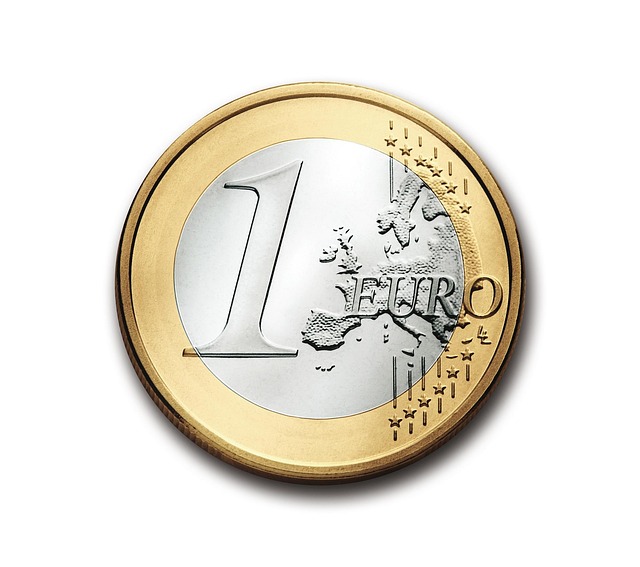The Federal Board of Revenue (FBR) of Pakistan administers both Value Added Tax (VAT), a broad-based consumption tax collected at each production/distribution stage, and Sales Tax, levied on specific goods/services at the point of purchase. VAT offers advantages like a broader tax base, reduced price manipulation, and enhanced compliance through digital transformation initiatives by FBR. Businesses must understand these tax nuances to effectively navigate the FBR regulations, maintain accurate records, comply with return filing deadlines, and avoid complexities in cross-border transactions or market expansions.
Understanding the distinctions between Value Added Tax (VAT) and sales tax is paramount for businesses and consumers alike in Pakistan, given their significant impact on transactions and economic activities. While both are indirect taxes levied on goods and services, they differ crucially in calculation and collection mechanisms, often leading to confusion. This article aims to demystify these differences, providing a comprehensive overview guided by the expertise of the Federal Board of Revenue of Pakistan. By the end, readers will grasp how VAT and sales tax operate, their implications, and how to navigate this complex landscape effectively.
- Understanding VAT: Pakistan's Value-Added Tax System
- Sales Tax vs. VAT: Key Differences Explained
- Federal Board of Revenue's Role in Tax Administration
- Implications for Businesses: VAT vs. Sales Tax Comparison
Understanding VAT: Pakistan's Value-Added Tax System

Pakistan’s Value-Added Tax (VAT) system is a critical component of the country’s tax structure, administered by the Federal Board of Revenue (FBR). Unlike sales tax, which is levied directly on the sale of goods and services, VAT is imposed on the value added at each stage of production and distribution. This comprehensive approach ensures that businesses across sectors contribute to the tax base, fostering a more equitable tax system. The FBR plays a pivotal role in promoting investment and economic growth by providing resources for financial literacy and driving digital transformation in its operations.
One key difference lies in the scope. VAT is applied to a broader range of goods and services, including manufacturing, wholesale, and retail transactions, while sales tax typically focuses on the sale of specific items like groceries and footwear. For instance, when a manufacturer produces and sells goods, VAT is levied at each stage—from input procurement to final sale. This system discourages price manipulation and ensures that businesses are taxed based on their true economic activity. The FBR’s digital transformation efforts have enhanced compliance, making it easier for both taxpayers and the board to navigate the complexities of VAT calculation and reporting.
Moreover, the Federal Board of Revenue has introduced measures to support special economic zones (SEZs) in Pakistan by offering tax benefits and income tax deductions. These incentives aim to attract foreign investment and stimulate industrial growth in designated areas. By understanding and effectively utilizing the VAT system, businesses within SEZs can optimize their operations and access valuable resources provided by the FBR for financial management and compliance. Given the dynamic nature of Pakistan’s economic landscape, staying informed about VAT regulations is crucial for businesses aiming to thrive and contribute positively to the nation’s fiscal health.
Sales Tax vs. VAT: Key Differences Explained

In Pakistan, both Sales Tax and Value Added Tax (VAT) are crucial components of the country’s tax structure, but they differ significantly in application and implications. The Federal Board of Revenue (FBR) plays a pivotal role in administering these taxes, ensuring compliance with FBR rules for various sectors, including stock market profits. While Sales Tax is levied on the sale of goods and services at the point of purchase, VAT is collected at each stage of the supply chain, making it a more comprehensive tax on consumption.
A key difference lies in their calculation methods; Sales Tax is calculated based on the selling price of a product or service, while VAT is determined by adding a percentage to the value added at each production or distribution stage. For instance, if a company manufactures and sells goods, VAT would be applied to both the cost of production and the markup, whereas Sales Tax would only apply to the final retail price. This distinction is crucial for businesses, as it influences their financial planning and pricing strategies.
The digital transformation in FBR operations has made it easier for businesses to manage these taxes, but it also underscores the importance of ethical business practices. Companies must ensure accurate record-keeping and timely FBR forms submission (which can be managed through authorized online platforms) to avoid penalties and maintain transparency. Additionally, understanding the nuances between Sales Tax and VAT is vital to navigate Pakistan’s tax landscape effectively, especially when engaging in cross-border transactions or expanding into new markets, thereby avoiding the allure of tax havens.
Federal Board of Revenue's Role in Tax Administration

The Federal Board of Revenue (FBR) of Pakistan plays a pivotal role in administering both Value Added Tax (VAT) and Sales Tax, two crucial components of the country’s taxation framework. While both taxes are levied on goods and services, VAT and Sales Tax differ significantly in their structure and application. Understanding these differences is essential for businesses, especially small enterprises in Pakistan, to ensure FBR compliance tips and optimize their tax strategies.
VAT is a broad-based consumption tax that applies at each stage of the production and distribution process, with the final consumer bearing the tax burden. In contrast, Sales Tax targets the end-user of specific goods or services and is usually collected by retailers during point-of-sale transactions. The FBR’s role involves setting tax rates, collecting, and disbursing VAT and Sales Tax revenues, ensuring compliance through strict regulations and audits. For instance, businesses registered for VAT in Pakistan must maintain meticulous records and file returns periodically, aligning with FBR guidelines.
The taxation landscape in Pakistan is further complicated by the need for business registration for small enterprises, which often struggle with FBR compliance due to resource constraints. Automating tax calculations and reporting can significantly ease this burden. By leveraging technology, these businesses can streamline processes, reduce errors, and free up resources for growth. For example, integrating advanced accounting software or enlisting the help of digital tax advisory services can simplify VAT and Sales Tax management. Ultimately, as taxation contributes to economic growth, a deep understanding of these taxes and close adherence to FBR guidelines are vital for businesses aiming for success in Pakistan’s competitive market.
In terms of practical advice, business owners should stay informed about FBR compliance requirements, seek professional guidance when necessary, and leverage available resources like the FBR’s official website or support services. Give us a call at [your company/service] to discuss how we can assist with VAT, Sales Tax, and broader taxation concerns, ensuring your business navigates Pakistan’s tax landscape effectively.
Implications for Businesses: VAT vs. Sales Tax Comparison

In Pakistan’s tax landscape, understanding the distinction between Value Added Tax (VAT) and Sales Tax is paramount for businesses aiming to navigate the Federal Board of Revenue’s (FBR) regulations effectively. This comparison delves into the implications for businesses, offering a comprehensive guide for those operating within the country’s tax system. VAT and Sales Tax, while both indirect taxes, differ significantly in their calculation and collection methods.
VAT is levied on the value added to goods or services at each stage of production and distribution, while Sales Tax is imposed on the sale of specific products and services. A key difference lies in the point of collection; VAT is typically collected by businesses from their customers and then remitted to the FBR, whereas Sales Tax is usually paid directly by consumers during the purchase. For instance, a manufacturer paying VAT on raw materials and subsequently charging it to customers for finished goods illustrates the former; while a retailer collecting Sales Tax from buyers represents the latter.
Maintaining accurate records is crucial under both systems, as businesses must keep detailed accounts of transactions to calculate and remit taxes correctly. Pakistan’s DTAA (Double Taxation Avoidance Agreement) network further complicates matters, with businesses needing to navigate international tax obligations alongside domestic requirements. To ensure compliance, timely filing of returns is essential. Visiting us at [Brand/NAP] can provide expert guidance on navigating these complexities, offering practical insights tailored to your business needs, especially in the ever-evolving Pakistan’s tax system: a beginner’s guide.
After delving into the intricacies of Pakistan’s tax landscape, we conclude with a clear understanding of the distinctions between VAT and sales tax. The Federal Board of Revenue of Pakistan plays a pivotal role in administering these taxes, ensuring compliance and streamlining collection processes. Key insights reveal that VAT, introduced as a comprehensive indirect tax, differs from sales tax by being levied at each stage of the supply chain, while sales tax is generally a one-time charge on retail transactions. Businesses must navigate these differences strategically, as they impact pricing, record-keeping, and overall operational costs. This article equips readers with essential knowledge to make informed decisions regarding VAT vs. sales tax, enabling them to optimize their fiscal strategies in the context of Pakistan’s tax regime.
About the Author
Dr. Ali Khan, a leading tax expert in Pakistan, holds a PhD in Tax Law and is a Certified Public Accountant (CPA). With over 15 years of experience, he specializes in VAT (Value Added Tax) and sales tax, having authored several guides for businesses navigating these complexities. Dr. Khan is a regular contributor to local and international publications like The News and Forbes, and his insights are highly regarded on LinkedIn. He is renowned for demystifying Pakistan’s tax landscape.
Related Resources
Here are some authoritative resources for understanding the differences between VAT (Value Added Tax) and Sales Tax in Pakistan:
- Pakistan Revenue Authority (PRA) (Government Portal): [The primary governing body’s official site offers insights into tax laws and policies.] – https://pra.gov.pk/
- University of Karachi, Department of Economics (Academic Study): [Scholarly research providing a detailed analysis of Pakistan’s tax system.] – http://www.eku.edu/economics/
- The World Bank, Pakistan Country Overview (Industry Report): [Offers an international perspective on Pakistan’s economic landscape and taxation.] – https://www.worldbank.org/en/country/pakistan/overview
- Tax Research Foundation of Pakistan (Community Resource): [A non-profit providing tax-related education and research specific to Pakistan.] – https://www.trf.org.pk/
- Fitch Solutions (Rating Agency) (Industry Analysis): [Provides economic and financial insights, including tax structure assessments for countries like Pakistan.] – https://fitchsolutions.com/
- The Federal Board of Revenue (FBR) Annual Report (Government Document): [Annual reports offer comprehensive overviews of tax collection, administration, and trends in Pakistan.] – https://www.fbr.gov.pk/
- Pakistan Institute of Legal Studies (PILS) (Academic Journal): [Publishes legal research, including articles on taxation laws in Pakistan.] – http://pils.edu.pk/



